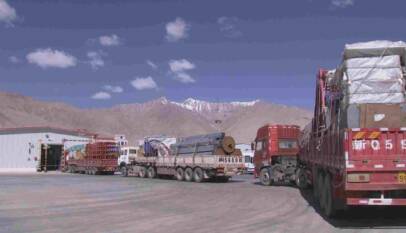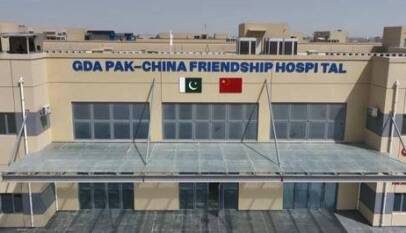CPEC to revitalize Pakistan’s livestock industry
Numerous initiatives launched as part of the CPEC will help to advance commerce between the two neighbouring nations in the livestock and agricultural industries. China will assist Pakistan in setting up fields for the high-yield chilli crop. The CPEC projects, it has been intended to enhance technological exchange, seed production, livestock and poultry breeding, agriculture product processing, and post-harvest management.
ISLAMABAD – Various projects initiated under the China-Pakistan Economic Corridor (CPEC) will prove beneficial in promoting trade between the two neighbouring countries in the livestock and agriculture sectors, WealthPK reported.
China will help Pakistan to establish farms for the cultivation of high-yield chillies. China will also help Pakistani farmers to produce embryos of cows with a larger quantity of milk. The joint initiative has an initial export potential of $500 to $550 million. The Chinese government has chosen two companies for the CPEC projects in the agriculture and livestock sectors. Litong has been chosen for agricultural projects and Royal Company for those in the livestock sector.
It has been planned to improve technical exchange and seed production, animal and poultry breeding, agriculture product processing and post-harvest management under the CPEC projects.
Dr Saiful Mujjahid, an economist, told WealthPK that poor seed quality, a lack of modern agricultural practises, low yields and a shortage of qualified farm labourers were affecting the agriculture and livestock sectors in Pakistan. He said that the country needed agricultural and livestock research to boost the production of goods and improve their quality for the purpose of export. China has more expertise in agriculture than Pakistan. Pakistan should get benefit from it by incorporating farming methods and raising awareness among local farmers to boost yields of different crops and vegetables.
Compound planting and greenhouses are Chinese agricultural innovations that are ideal for Pakistani crops. Pakistan should use green pesticides and organic fertilisers to reduce pollution caused by agricultural sources. The country needs to enhance the genetic diversity of the cows used for dairy farming. It requires better embryos for high-yield milk and the long lives of animals.
“Pakistan offers perfect conditions for growing chillies. We should cultivate more chillies in a smaller space with the aid of Chinese businesses by utilising better farming methods, the most recent research and better seeds. This might open up further export opportunities for Pakistan,” said Dr Saif.
He said that under the CPEC framework, Chinese companies in collaboration with Fauji Fertiliser Corporation would set up factories to produce pesticides as well as livestock and poultry feed in Allama Iqbal Special Economic Zone in Faisalabad. “It will increase collaboration between China and Pakistan on food, livestock and agricultural research and development. Pakistan’s economy will improve if Chinese technology is adopted. It will help to increase irrigation efficiency and agricultural production, encourage innovative technologies and produce high-value crops,” he said.
He said that poor infrastructure was a major barrier to both the development of agriculture and sustained economic growth in Pakistan. CPEC projects will improve the infrastructure for agriculture by giving farmers access to modern technology. CPEC will promote foreign investment in the agriculture sector, increasing employment prospects for graduates in the long run. “Through road, rail and marine connections, CPEC will assist farmers in reaching larger markets where they can export their goods at profitable prices. CPEC projects include the expansion of farms to increase production using the newest tools and methods. It will improve Pakistan’s economy and increase its Gross Domestic Product,” Dr Saif told WealthPK.
Gwadar Pak-China Friendship Hospital pioneers laser-assisted bladder stone surgery
China-aided Gwadar Pak-China Friendship Hospital has debuted in conducting an operation to…









